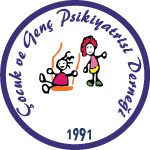ABSTRACT
Cystic fibrosis (CF) is an autosomal recessive disease caused by mutations in the gene encoding the CF transmembrane regulator protein, which is the cell membrane chloride channel. Chronic diseases such as CF, epilepsy, chronic kidney failure, cancer, diabetes and asthma lead to many conditions such as additional rules for young people's lives, long-term drug treatments that require regular use, and diet practices. Even in adolescents with normal development, there are many difficulties in compliance with treatment. More difficulties can be observed in patients with Asperger’s syndrome (AS), who are disadvantaged in social adaptation, interpreting social messages and abstract concepts. AS is included under the title of autism spectrum disorders in DSM-5. Qualitative deterioration in social interaction, limited, stereotyped and repetitive patterns in behavior, interests and activities, without significant language development delay are the main features of this disorder. In cases where both mental disorders and organic diseases coexist, a multidisciplinary approach provides benefits such as control of infections or additional disorders, reduction in hospitalizations, and increase in social adaptation skills. In this case report, it is aimed to discuss the diagnosis and treatment process of a 15-year-old male patient who was diagnosed with CF in addition to AS, who applied to our department with obsession and behavioral problems.
Introduction
Cystic fibrosis (CF) is an autosomal recessive disease caused by mutations in the gene encoding the CF transmembrane regulator protein.1 It often occurs in childhood with progressive pulmonary symptoms and exocrine pancreatic gland insufficiency.2 Diagnosis is made by measuring chloride in sweat and confirmed by a gene mutation test.3 There is increasing interest in factors influencing the efficacy of treatment to improve the prognosis of CF, including psychological difficulties.4, 5
Asperger’s syndrome (AS) is classified under autism spectrum disorder (ASD). Although the information about the frequency of AS is limited, it is estimated to be 1 in 200. It is often difficult to diagnose the condition at an early age, and it has been reported that the diagnosis is made at an average age of 11. Cases in which the diagnosis of AS was delayed until adulthood have also been reported.6, 7
In the National Research on Children with Special Health Needs, it was found that children with ASD had more difficulty accessing care practices, experienced more financial problems, and were more affected in their family well-being, indicating that more attention should be paid to the medical needs of children with ASD.8 Both CF and AS are lifelong and can cause burnout for patients and their families during the treatment process.9 In the literature, there are few studies on the approach to additional chronic organic disorders such as CF in adolescents diagnosed with AS. This case report was presented to increase awareness of this complex comorbidity, to enable healthcare professionals to be sensitive to the needs of these patients, and to emphasize the importance of a multidisciplinary approach. It discussed the approach to the difficulties experienced by the patient and his family during the treatment of CF in a patient with AS, as highlighted in the literature. The patient and his family were informed about the scientific presentation of the follow-up and treatment process, and written consent was obtained prior to publication.
Case Report
A 15-year-old male patient presented to our clinic complaining of “washing his hands for hours and exhibiting aggressive behavior towards the family”. The patient learned to read by himself when he was 4.5 years old. He reported selective eating and had restrictive and intense interests in space and astronomy. His social relationships were always limited. When he was 12 years old, he was diagnosed with AS. The patient was directed to special education, but the family did not accept it citing a fear of “stigmatization”. After about a year, the family voluntarily left child psychiatry follow-up. Due to persistence of complaints which included avoidance of eye contact, obsessions and compulsions and increasing requirements for social, academic and medical compliance the family consulted our department after 2 years without follow-up.
In the outpatient follow-ups, sertraline treatment and cognitive behavioral therapy were started. After explaining the importance of individual education to the family, the family enrolled in a special education center. It was recommended to spend time with peers outdoors in social areas with low infection risk. It has been learned that reduced effort capacity due to CF also restricts outdoor activities, thereby reinforcing online games. It was planned to continue his treatment in the day treatment clinic to provide more intensive treatment and to participate in group activities.
Personal and Family History
The mother was a 30-year-old university graduate working as a kindergarten teacher while the father was a 35-year-old university graduate working as an accountant. When the patient was 3 months old, they presented to the pediatric outpatient clinic with complaints of “failure to thrive, failure to gain weight, greasy stools and salty sweating”. As a result of a sweat test and genetic analysis, he was diagnosed with CF. Since then, he has been followed regularly by the pediatric gastroenterology and endocrinology departments. Until the age of three, he was hospitalized eight times due to lung infections. His last hospitalization was in 2021 due to infection and lasted 18 days.
Day Treatment Clinic Follow-up and Treatment Process
In the day clinic, the patient was diagnosed with CF, AS, and obsessive-compulsive disorder. The behavioral approach focused on communication skills, developing empathy, motor skills, and adapting to the rules. During the clinical follow-up period, it was observed that the patient’s eye contact increased, his speech was more understandable, he did not interrupt the CF treatment, and he adapted to the hygiene rules in a short time. He was good at painting, and he started a painting course.
In family interviews, it was found that they experience many negative emotions. The family had difficulty in setting rules, assigning responsibilities to the patient and acted overprotectively. Behavioral problems such as defiance, stubbornness, and anger attacks were frequently seen in the patient; and the family was very worried that he could even disrupt the treatment protocols. Suggestions were made to strengthen the social support system. In the first week of the follow-up, the treatment in the day treatment clinic was terminated at the request of the family, who was worried about academic participation. Outpatient follow-up was planned, and the patient was discharged with partial remission. The total score of the Wechsler Intelligence Test performed 2 years ago was 140. While the state-trait anxiety inventory sub-scores were 45/50 at the first outpatient clinic admission in May 2021, the scores after the day clinic improved to 34/42. When the scores of the Beck Depression Scale, administered at both admission and discharge, were examined, the scale score, which was 38 at admission, was found to be 26 at discharge from the clinic. The Maudsley Obsessive Compulsive Disorder Scale measured at 20 points both in the outpatient clinic and post-clinic. Although there was a decrease in the scale scores at the end of the treatment process administered in both the outpatient and day clinics, it was observed that the scores were still high. Disease severity (Clinical Global Impression-Severity) was 5 (severely ill) and global improvement (Clinical Global Impression-Improvement) was 2 (highly improved) on entry and exit from the day-treatment clinic using the Clinical Global Impression Scale.
Discussion
CF can affect patients and their families in many ways. Physical and social restrictions, strict medical practices, hospitalizations, worries about the disease and uncertainty about the future can cause anxiety and depression in both patients and parents.10 As for AS, the characteristics of the disorder, especially problems in verbal communication, make the diagnosis and treatment process more complex.8 Although there is no clear information about the co-occurrence of the diagnosis of CF and AS, in a study conducted with 18 patients with attention deficit hyperactivity disorder and CF, it was reported that two of the patients had an additional diagnosis of ASD.11 In our case, the presence of AS together with the diagnosis of CF adversely affected treatment compliance and continuity, motivation in the treatment processes, and the course of the disease. In a study by Pasley et al.,9 the psychiatric difficulties identified by the multidisciplinary CF team in the treatment of outpatients with CF and ASD diagnoses were fear/anxiety about going to the CF clinic, medication changes, and problems with eating and constipation. For these situations, it is recommended to cooperate with parents and strengthen parents’ coping skills, to have stable health personnel working with the patient, to use social stories, and to wait a month for adaptation in case of changes. It was stated that it would be beneficial to enable the child to explore medical equipment and to use behavioral approaches such as gradual exposure and desensitization to teach applications.9 During the disease process, parents can sometimes experience negative emotions such as anger, helplessness, guilt, and fear of losing their child. The main responsibilities of the psychiatrist are to assess the psychiatric effects of CF, to make comprehensive assessments, to provide intervention, and to support when emotional, behavioral, and psychological difficulties arise.10 Although the prognosis of the disease is variable, coping skills are particularly important in crisis periods when it progresses negatively, and a rational and conscious attitude in these processes is very effective in managing crises effectively, and ensuring full well-being. The ability of parents to manage the process is very important in ensuring the physical, social, and mental well-being of children, compliance with treatment and control of crisis periods. In addition, when processes such as having a chronic disease in adolescence, the need for long-term and regular treatment, staying away from peers, and frequent hospitalizations are considered by young people as preventing independence, insecurity, inadequacy, feelings of powerlessness, and depression may occur.12The fact that our patient had strict rules and rituals due to AS, frequent doctor check-ups and treatment practices, and the change of treatment teams and centers may have increased anger and aggression and negatively affecting his treatment compliance. In this context, those who experience the disease face different crisis periods in childhood, adolescence, and adulthood, and psychosocial support is very important for patients during these periods. Awareness of the emotional problems experienced by these children and their families can be beneficial for therapeutic efficacy and for preventing potential problems that could seriously impair the patient’s well-being.10
Management of CF requires an interdisciplinary team to maximize life expectancy and quality of life. All patients and their families should be offered the opportunity to meet with a child and adolescent psychiatrist.10 Our patient benefited from the day treatment clinic, and it is thought that the may also be beneficial for patients with chronic organic disorders, diagnosed with AS or ASD.
Conclusion
The coexistence of CF and AS in adolescence necessitates a comprehensive multidisciplinary approach. Addressing potential challenges arising from Asperger-related difficulties through individual and family counseling, alongside structured support in educational and social domains, is essential to optimize treatment adherence. We hope that this article will provide valuable insights and contribute to the management of chronic conditions accompanied by AS.



